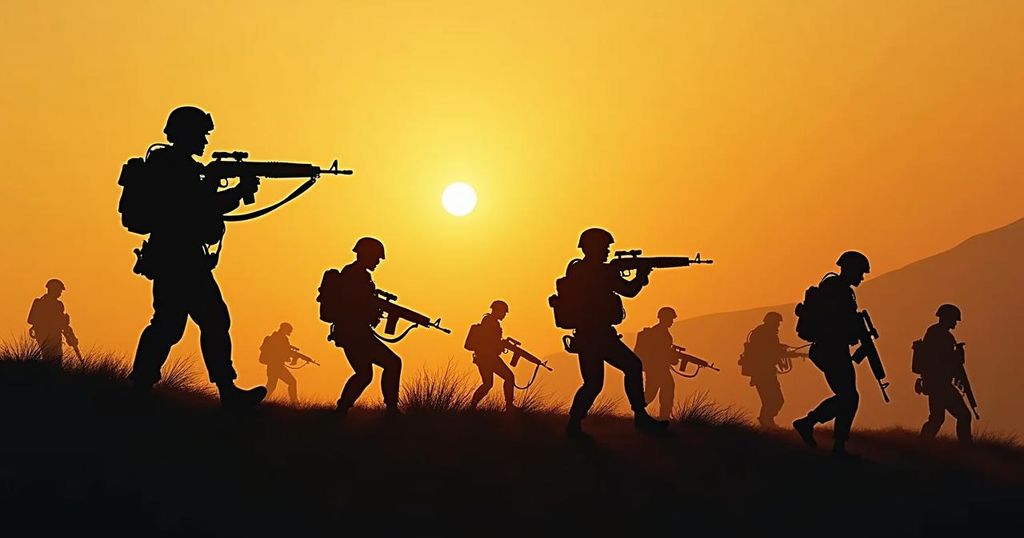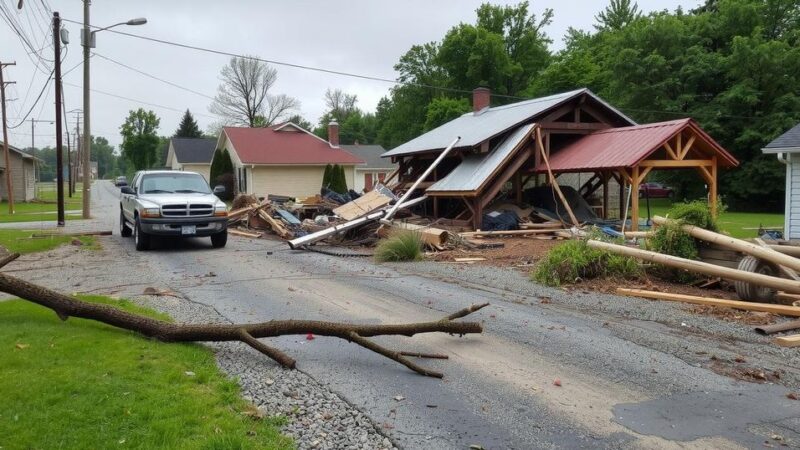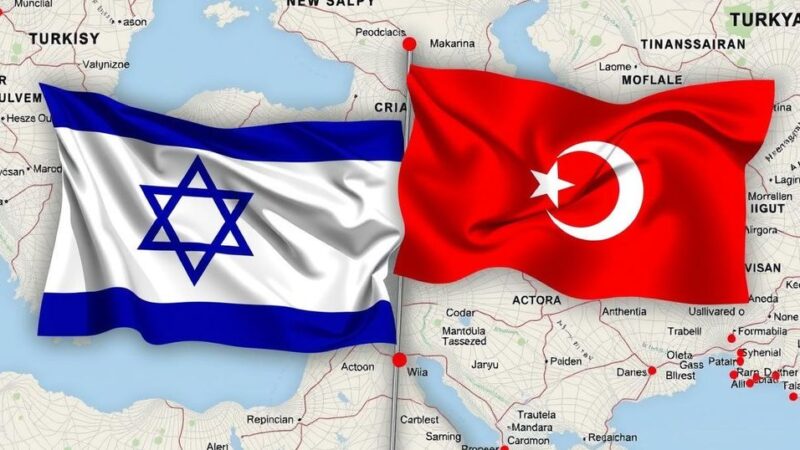The conflict has intensified, with Hezbollah engaging Israeli troops in southern Lebanon following Iranian missile strikes on Israel. Diplomatic talks among world leaders are being initiated to manage the escalating crisis, with particular emphasis on regional stability and civilian protection. Israeli officials have vowed to respond to Iranian actions, while Hezbollah warns that initial attacks are just the beginning.
As hostilities escalate in the region, Israeli forces are engaged with Hezbollah in southern Lebanon, following reports of an attack that prompted the evacuation of wounded soldiers via helicopters. Andreas Krieg, a senior lecturer at the King’s College London School of Security Studies, articulated that any military retaliation by Israel towards Iranian nuclear facilities would likely be ineffective, as these sites are significantly fortified and buried deep beneath mountainous terrain. He stated, “The attack by Iran yesterday was far more severe than in April in terms of impact, so the response sent by Israel will have to be harsher than last time with aircraft perhaps entering Iranian airspace and targeting military sites.” Furthermore, Krieg emphasized that strikes on non-military installations, such as oil refineries, would not serve as justifiable retaliation. In light of these tensions, Italian Prime Minister Giorgia Meloni announced she would convene a call among Group of Seven leaders to address the troubling developments in the region, including Iran’s missile attack on Israel and the precarious situation in Lebanon. Meloni expressed her government’s “deep concern” regarding these events. Simultaneously, the Jordanian government reaffirmed its commitment to safeguarding national stability, with spokesperson Mohammad Momani stating, “Protecting Jordan and Jordanians is our first responsibility.” This statement follows Iran’s ballistic missile onslaught aimed at Israel in response to casualties in Gaza and Lebanon, along with the killing of senior Hamas and Hezbollah officials. Jordan’s air defenses successfully intercepted several missiles, with remnants landing in various locations within the kingdom, resulting in minor injuries. Additionally, the Lebanese military confirmed that Israeli troops temporarily crossed into Lebanese territories before retreating. Reports indicated an incursion approximately 400 meters into Lebanon, breaching the Blue Line—a demarcation established to separate the two countries India expressed serious concern regarding the escalating conflict, calling for restraint and the protection of civilians as Israel gears up for a response to Iranian attacks, highlighting the necessity for dialogue and diplomacy to prevent a broader regional war. Israeli officials, including Foreign Minister Israel Katz, vowed to retaliate against Iran’s missile assault, escalating diplomatic tensions further. Katz barred United Nations Secretary-General Antonio Guterres from entering Israel, citing the latter’s failure to explicitly condemn the Iranian missile strikes, stating, “Anyone who cannot unequivocally condemn Iran’s heinous attack on Israel does not deserve to step foot on Israeli soil.” Hezbollah spokesperson Mohammad Afif warned that recent hostilities were merely the beginning, asserting the group’s readiness to make extreme sacrifices. “This is only the first round,” Afif declared, suggesting that Israel’s operational advantages would eventually falter under ground losses.
The current tensions in the Middle East revolve around heightened military confrontations between Hezbollah and Israeli troops, prompted by regional security incidents including missile attacks by Iran against Israel. With significant ramifications on both military strategies and civilians in the border areas, the situation has drawn international attention and concern from global leaders aiming for dialogue and possible resolutions to prevent further escalation.
In conclusion, the ongoing conflict between Hezbollah and Israeli forces is part of a broader regional crisis amplified by Iranian missile attacks on Israel. International leaders are increasingly involved, with calls for restraint and diplomatic dialogue to prevent further violence. The dynamics at play, involving Jordan’s security measures and Hezbollah’s warnings, underscore a complex and volatile situation that may evolve rapidly unless addressed through collective international intervention.
Original Source: www.aljazeera.com







